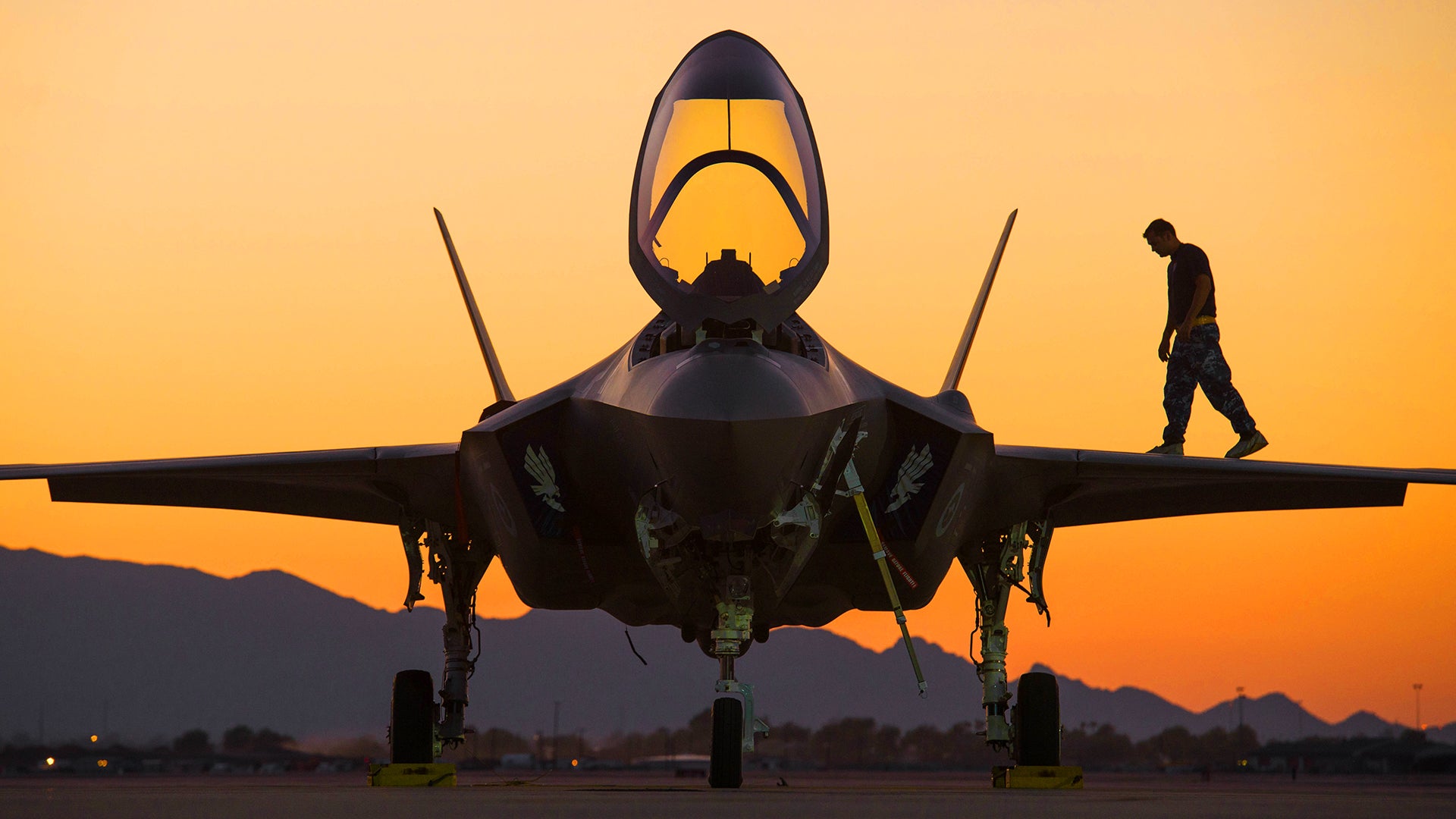The possibility that the United States could sell F-35 Joint Strike Fighters to the United Arab Emirates following its normalization of relations with Israel has been met with fierce opposition from Israeli officials and politicians. As such, it has already led to a political spat between the two now openly friendly Middle Eastern nations. However, the U.S. government has a number of potential mechanisms, including leveraging the heavily interconnected nature of the support systems that come along with the F-35 and the general complexities of operating those jets, that it could use to help assuage Israeli concerns that the prospective sale might challenge its “qualitative military edge” in the region.
Reports that a sale of F-35s to the UAE was tied to its new deal with Israel had first emerged within days of the two countries announcing that they would normalize their diplomatic relations on Aug. 13, 2020. Israeli Prime Minister Benjamin Netanyahu subsequently denied that there were any direct references to arms sales of any kind to the UAE in the agreement.
“The U.S. has made it clear that it will always take strict care to maintain Israel’s qualitative edge,” a statement from Netanyahu’s office read. The Prime Minister “was explicit in Israel’s opposition to the sale of F-35s and other advanced weaponry to any country in the Middle East.”
Israeli opposition
Since those latest reports of a potential sale of F-35s to the UAE first emerged, there has been a steady, vocal backlash to the plan within Israel. The Israeli Air Force is presently the only operator of the type in the Middle East.
“It’s not good for Israel that the plane is going around in other places,” Benny Gantz, the head of the Blue and White political coalition, who is serving both as Alternate Prime Minister and Defense Minister as part of the power-sharing agreement that ended an Israeli political crisis earlier this year, told reporters on Aug. 18. “We need to talk to the Emiratis, to the Americans, and make sure that our security interests are being upheld,” Gantz told reporters in a press conference.”
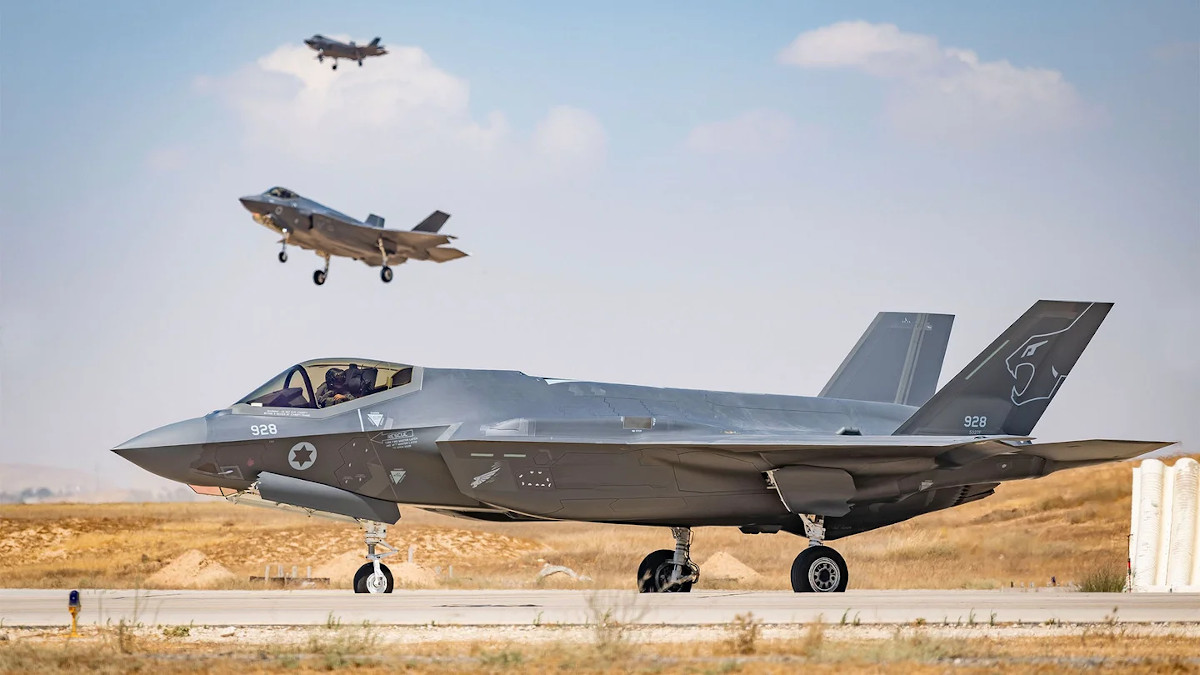
“We oppose the sale of even one screw of one plane of the stealth fighters to any country in the Middle East, if we have peace with them or not,” Tzachi Hanegbi, head of the recently created Settlement Affairs Ministry, as well as a member of Netanyahu’s Likud Party and long-time supporter of the Prime Minister, said on Aug. 25. “That’s our position, and it has been presented in the past and has been clarified in recent weeks.”
Still, whatever the U.S.-brokered deal between Israel and the UAE did and didn’t cover, and whatever the Israeli position may be right now, authorities in Abu Dhabi clearly understood that this was all supposed to provide them a path to acquiring F-35s, among other things. Emirati officials reportedly canceled a planned trilateral meeting with American and Israeli representatives earlier this month in protest to Israel’s recent public opposition to the sale.
The U.S. government had also given the impression a possible F-35 sale to the UAE was now more firmly on the table. “They have the money and they would like to order quite a few F-35s,” U.S. President Donald Trump said on Aug. 23. “It’s the greatest fighter jet in the world, as you know, by stealth, totally stealth.”
“They’d like to buy F-35s, we’ll see what happens,” he continued. “It’s under review, but they made a great advance in peace in the Middle East.”
Export controls
This is hardly the first time that the UAE has expressed interest in acquiring Joint Strike Fighters. If it were to get approval to buy them, the country would become the first operator the F-35 in the Middle East outside of Israel and could pave the way for other sales in the region.
When it comes to selling the UAE the jets now, the United States is not necessarily bound by Israeli protestations, though as America’s chief ally in the region, they certainly carry significant weight and the U.S. government has a long-standing history of being deferential to many of Israel’s concerns. At the same time, American authorities have similarly extensive experience with placing significant controls on arms sales to politically sensitive customers.
One of the best-known examples is how closely the U.S. government monitors the status and use of Pakistan’s F-16 Viper fighter jet fleet. “Each technical security team is made up of four to five U.S. Air Force personnel and some 30 contractors who keep a round-the-clock watch on Pakistan’s advanced F-16s,” according to a recent War On The Rocks article, where one of the authors had actually been part of this program. “The mission of the teams is to ensure that the Pakistan Air Force uses its F-16s as intended, does not modify them or the weapons they carry, and does not share the technology with unauthorized parties.”
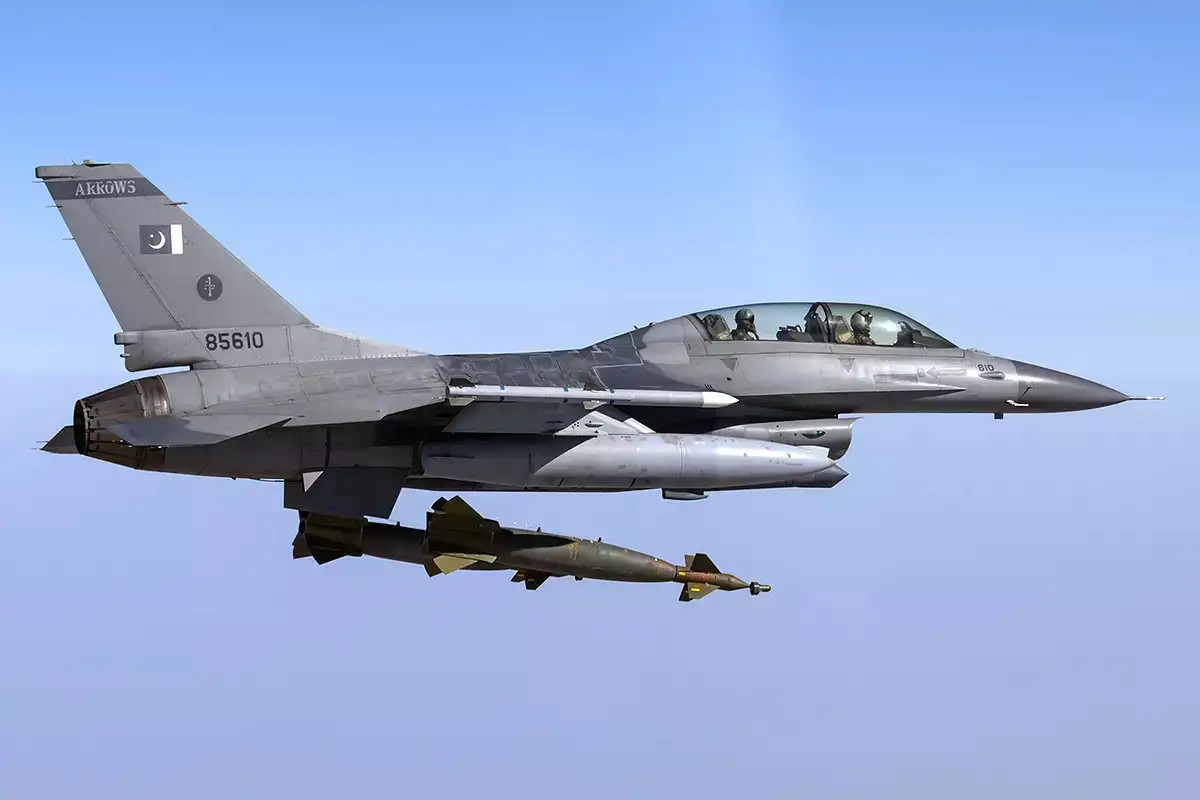
That last point would be of even greater significance with regards to the F-35, to Israel and the United States. The U.S. government notably ejected Turkey, a NATO ally, form the Joint Strike Fighter program over concerns that Russia might be able to glean sensitive details about the aircraft’s capabilities by way of supporting the Turkish military’s new S-400 surface-to-air missile systems.
Other safeguards
There have been rumors over the years that Pakistan’s Vipers have tracking devices hidden inside them, or within certain components, as well as additional systems that would allow American officials to remotely disable at least key capabilities on the jets, if necessary. Reportedly, these F-16s also already have certain systems with more limited functionality compared to their American counterparts and the U.S. government has taken additional steps to prevent Pakistani personnel from servicing certain key elements independently.
Preventing a customer from servicing all aspects of a fighter jet independently makes them beholden to outside support, which might be more difficult after a political break with the United States. This, in turn, could quickly lead to a deterioration in combat capability if the jets don’t end up being grounded entirely. This actually appears to be what is happening to the Iraqi Air Force’s F-16IQ fleet after Lockheed Martin withdrew contractors due to safety concerns after an unprecedented Iranian ballistic missile strike aimed at American personnel in Iraq in January.
“The issue is Lockheed withdrew its employees. However, all these planes [F-16s] need to be serviced and supervised,” an Iraqi pilot recently told Fox News. “But because of a lack of parts, the Iraqi defense ministry started making its own parts and things, which is not allowed and effectively voids the warranty on them. In one case, a tool was left inside one of the engines.”
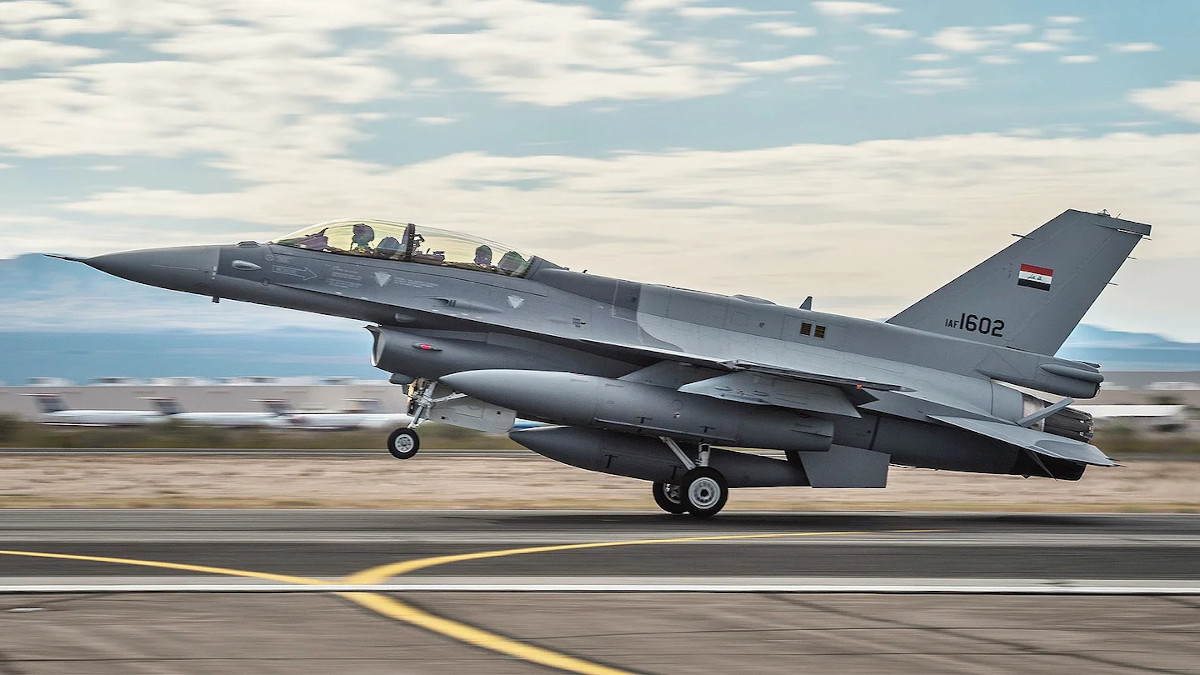
“Most planes are now grounded because they [air force personnel] don’t know what they are doing re the upkeeping, which in turn means that the Iraqi pilots can’t do their certification flights every month thus are rendered not combat-ready,” that same source continued.
Some countries, such as Venezuela and Iran, have managed to keep American-supplied fourth-generation fighter jets operational after support for those aircraft was severed, but the actual combat utility of those aircraft has long been a matter of debate. Turkey notably began stockpiling spare parts for its F-16s last year, to try to ensure that it could continue more normal operations amid concerns that the U.S. government might enact a blanket arms embargo against the country over the S-400 spat, as well as Ankara’s unilateral intervention into Northern Syria last year. Congress has quietly blocked any new arms sales to Turkey since mid-2018 in response to the Russian surface-to-air missile system purchase and other subsequent issues.
The stealthy fifth-generation F-35 would present a much more significant challenge in this regard. Just maintaining the jet’s low observable coatings would be very difficult without the appropriate infrastructure and support, even for a short period of time. The jets are also notably more maintenance intensive, just in general, and require spare parts that need to be sourced through a worldwide integrated logistics chain. The aircraft also have a greater number of proprietary systems, as well as software, compared to their predecessors.
The F-35’s heavily networked nature
Exerting this kind of control over any future UAE F-35 fleet may actually be even easier to do given the Joint Strike Fighter’s cloud-based support infrastructure, known as the Autonomic Logistics Information System (ALIS), and the planned successor to that system, the Operational Data Integrated Network (ODIN). At present, ALIS, which you can read about more in detail in this past War Zone piece, acts as a conduit through which a wide swath of data passes.
This data includes, as its name implies, information about maintenance and logistics issues, including the diagnosing of faults and the ordering of replacement parts, as well as new software upgrades. In addition, however, it is also the loading point for operational mission packages, which include flight route and target information, as well as locations of possible threats and other hazards. At the completion of a mission, sensor data and other details come out the same way to help with debriefing and future mission planning.

How deeply integrated ALIS has been into every aspect of F-35 operations has been a source of concern for other U.S. allies in the past, who worried that it could be grabbing sensitive information and putting it on U.S. government or Lockheed Martin servers. A number of Joint Strike Fighter program participants have since developed their own firewalls to prevent the outflow of certain information, but still have to rely on the computerized system for day-to-day operations.
Loss of access to ALIS could be severely limiting, if not totally debilitating to an F-35 operator in short order. It’s worth noting that this is why Israel already fought to secure the rights to operate its F-35Is, also known as Adirs, independently of ALIS and add Israeli-specific software to the jets. This makes them unlike any other Joint Strike Fighters in the world, even those that the U.S. Air Force, Marines, and Navy fly.

The U.S. military is also now in the process of transition from ALIS, which has been long criticized for not working properly, a saga you can read about in more detail in this past War Zone piece, to ODIN. In addition to hopefully addressing many of the long-standing issues with ALIS, this new system is notably a U.S. government-owned product, rather than proprietary Lockheed Martin one. This raises the possibility that the U.S. government may be able to further develop an export-specific version with reduced capabilities and built-in backdoor safeguards for certain future customers, even beyond the UAE.
Aid and other concessions to Israel
Beyond export controls and other limits the U.S. could place on any F-35s that might go to the UAE, it could also seek to mitigate any Israeli concerns by approving new arms sales, as well as other military and security assistance, among other things to that country. There are some indications already that Israel may already know that the Emirate Joint Strike Fighters are going to become a reality and is looking to leverage that in this way.
“Even if there’s a chance that they won’t accept our position, they’ll find a way to strengthen our advantages, as they’ve done in the past,” Israeli Settlements Affairs Minister Hanegbi had said on Aug. 25.
“I assume the Americans are developing means to overcome ‘stealthiness.’” Israeli Energy Minister Yuval Steinitz said in a separate interview on the same day. “If they share that with us, it will be good.”
The Israel Defense Forces are in the midst of a number of modernization efforts, especially with regards to aircraft and helicopters, that it could also seek to link in some way to its support for a UAE F-35 purchase. This includes the potential acquisition of new advanced F-15 combat jets, orders for KC-46A Pegasus aerial refueling tankers, and a replacement for its CH-53 Yasur heavy-lift helicopter fleet.
With regards to the F-15s, specifically, the jets that Israel is considering could be very similar to the U.S. Air Force’s future F-15EXs, which that service has indicated might be able to carry future hypersonic weapons. That’s a combination that Israel could be very interested in gaining access to, which would give them another tool for conducting long-range strikes against time-sensitive or other high-value targets deep inside a hostile country. Israel was an early pioneer of using the F-15 as a long-strike platform and is set to operate Eagles alongside its F-35s for years to come.
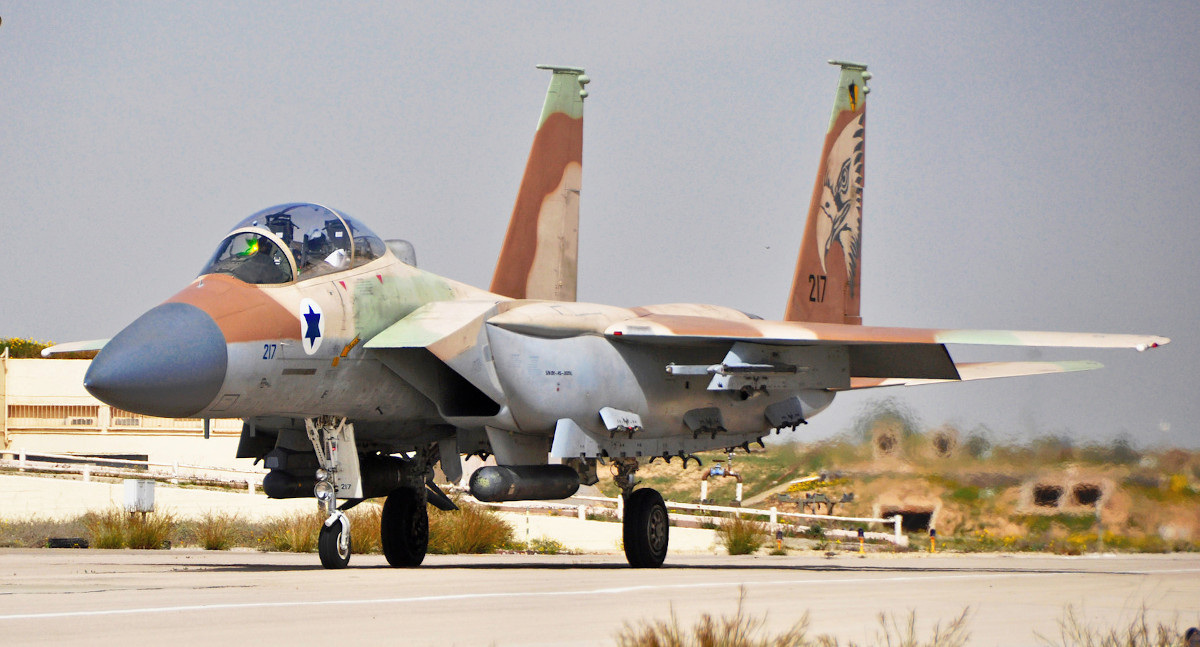
Israeli authorities could also seek U.S. government support on other more tangential issues, such as the controversial settlements in occupied Palestinian territories and other territorial claims. President Donald Trump’s Administration has already been very supportive of Israeli efforts in those regards, formally recognizing Israel’s capital as Jerusalem in 2017, as well as move the U.S. Embassy there, and the country’s sovereignty over the contested Golan Heights region last year.
Domestic Israeli considerations
Though it certainly has legitimate national security concerns, it’s also not clear how much of Israel’s public opposition to the UAE buying F-35s is also being driven by domestic politics. Israeli media reports on the purported “secret clause” regarding the jets in the normalization deal also suggested that Netanyahu had negotiated it without consulting Gantz. The Prime Minister, who is on trial over corruption charges, proceedings which are due to resume next year, has been embattled for some time now, had found himself in a 500-day-long political crisis that eventually led to the current Israeli government power-sharing arrangement.
Whether or not it’s politically tenable at all for Israeli politicians to express approval of any kind for the UAE’s F-35 aspirations in the near term, no matter what the United States might offer in return, very much remains to be seen. How authorities in Abu Dhabi might respond themselves is unclear. From a practical viewpoint, there is not necessarily an immediate need for the Emirate Air Force to get F-35s, as it has been working in recent years to upgrade its already relatively advanced U.S.-supplied F-16E/F Desert Falcons, as well as its French-made Mirage 2000 combat jets.

There has also been talk that the UAE might buy newer Russian fighters, such as the Su-35S Flanker-E or the Su-57. All of these efforts and proposals are byproducts of the UAE being unable to secure approval to buy F-35s on multiple occasions already in the past. The possibility that the Emirati Air Force could seriously consider acquiring aircraft from Russia would likely impact the U.S. government’s own decision-making process, irrespective of Israeli concerns.
Jared Kushner, President Trump’s son-in-law and a senior advisor who has been heavily involved in Middle East diplomatic efforts, had said in an interview on Aug. 23 that the normalization of ties between Israel and the UAE “should increase the probability” of the latter country getting F-35s. “Obviously we’ll look at the QME [qualitative military edge] and we’ll do everything in accordance with the right standards, but it’s something that the State Department and the U.S. military is looking at.”
There certainly seems to be growing support within the U.S. government to finally sell F-35s to the UAE and it has many options available to it that could help convince Israel to drop its opposition, ones that Israel may already see as beneficial and is gaming to make them a reality.
Contact the author: joe@thedrive.com
